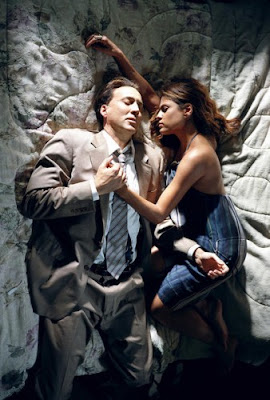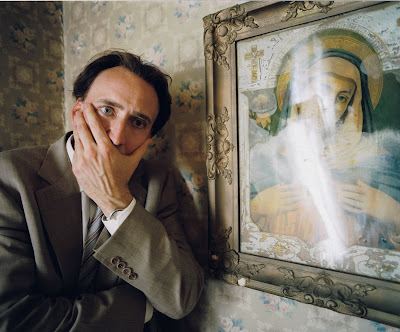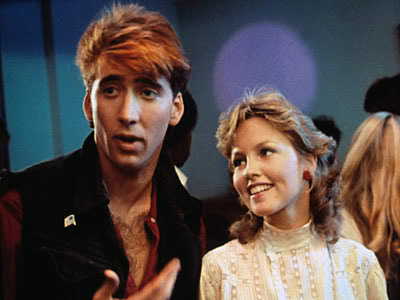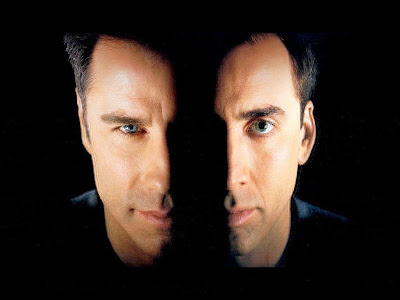
WERNER HERZOG BRINGS THE MUSIC BACK
By
Alex Simon
Academy Award-nominated German film director, screenwriter, actor and opera director Werner Herzog was born Werner H. Stipetić on 5 September 1942 in Munich. His family moved to the remote Bavarian village of Sachrang in the Chiemgau Alps after the house next to theirs was destroyed during bombing towards the close of World War II. When he was twelve, he and his family moved back to Munich. The same year, Herzog was told to sing in front of his class at school and adamantly refused. He was almost expelled for this and until the age of eighteen listened to no music, sang no songs and studied no instruments. He would later say that he would easily give ten years from his life to be able to play an instrument. At fourteen, he was inspired by an encyclopedia entry about film-making which he says provided him with "everything I needed to get myself started" as a film-maker. He studied at the University of Munich, despite earning a scholarship to Duquesne University in Pittsburgh, Pennsylvania.

In the early 1960s, Herzog worked nightshifts as a welder in a steel factory to help fund his first films. He hasn’t put down the camera since. He is often associated with the German New Wave movement along with Rainer Werner Fassbinder, Margarethe von Trotta, Volker Schlöndorff, Hans-Jürgen Syberberg and Wim Wenders His films often feature heroes with impossible dreams, people with unique talents in obscure fields, or individuals who find themselves in conflict with nature.
Herzog’s films have won and been nominated for many awards. His first important award was the Silver Bear for his first feature, Signs of Life. Nosferatu the Vampyre was also nominated for Golden Bear in 1979. Most notably, Herzog won the best director award for Fitzcarraldo at the 1982 Cannes Film Festival where, in 1975 his The Enigma of Kaspar Hauser won The Special Jury Prize (also known as the 'Silver Palm'). Other Herzog films nominated for Golden Palm are: Woyzeck and Where The Green Ants Dream. His films have also been nominated at many other important festivals around the world: César Awards (Aguirre, The Wrath of God), Emmy Awards (Little Dieter Needs to Fly), European Film Awards (My Best Fiend, a documentary about his legendarily tumultuous relationship with actor Klaus Kinski) and Venice Film Festival (Scream of Stone and The Wild Blue Yonder).
In 1987 he and his half-brother Lucki Stipetic won the Bavarian Film Awards for Best Producing, for Cobra Verde and in 2002 he won the Dragon of Dragons Honorary Award at the Kraków Film Festival.
Herzog was honored at the 49th San Francisco International Film Festival, receiving the 2006 Film Society Directing Award. Grizzly Man, his documentary of the life and death of Timothy Treadwell, won the Alfred P. Sloan Prize at the 2005 Sundance Film Festival. Encounters at the End of the World won the award for Best Documentary at the 2008 Edinburgh International Film Festival and was nominated for the Academy Award for Documentary Feature.
Herzog’s latest might seem to be a departure from his usual fare, but if you look closer, Bad Lieutenant: Port of Call New Orleans bears many of the master’s signatures. Nicolas Cage stars as a drug-addicted New Orleans cop whose life is slowly coming apart in the changing world of the post-Katrina Big Easy. Although it shares half a title with Abel Ferrara’s 1992 cult classic Bad Lieutenant, the similarity begins and ends there, with Port of Call being every bit as much of a Werner Herzog original as Bad Lieutenant was all Ferrara. The First Look Features release, which co-stars Eva Mendes, Val Kilmer and Alvin "Xzibit" Joiner hits U.S. screens November 20.
Werner Herzog sat down with The Hollywood Interview in Los Angeles, where he has lived since 1995. Here’s what transpired:
When I first heard you were doing this film, I thought ‘What an unlikely marriage of subject and filmmaker.’
Werner Herzog: (laughs) What’s your thought now?
I loved it. I think it’s your funniest film.
It is, yes. There’s such an instant rapport with the audience in terms of the sort of wild, hilarious side of it. It’s humor that you cannot easily name, however, like when you look at slapstick, you know immediately what it is that’s so funny. You know where the jokes are. But here it’s very hard to figure that out, yet audiences have responded very strongly to it.
So there was no hesitation on your part in doing a sequel, or remake of sorts?
It does not bespeak great wisdom to call the film The Bad Lieutenant, and I only agreed to make the film after William Finkelstein, the screenwriter, who had seen a film of the same name from the early nineties, had given me a solemn oath that this was not a remake at all. But the film industry has its own rationale, which in this case was the speculation of starting some sort of a franchise. I have no problem with this. What the producers accepted was my suggestion to make the title more specific—Port of Call: New Orleans, and now the film’s title combines both elements. Originally, the screenplay was written with New York as a backdrop, and again the rationale of the producers set in by moving it to New Orleans, since shooting there would mean a substantial tax benefit. It was a move I immediately welcomed. In New Orleans it was not only the levees that breeched, but it was civility itself: there was a highly visible breakdown of good citizenship and order. Looting was rampant, and quite a number of policemen did not report for duty; some of them took brand new Cadillacs from their abandoned dealerships and vanished onto dry ground in neighboring states. Less fancy cars disappeared only a few days later. This collapse of morality was matched by the neglect of the government in Washington, and it is hard to figure out whether this was just a form of stupidity or outright cynicism. So we tried to incorporate those elements into the story.
 Herzog with Nicolas Cage and Eva Mendes.
Herzog with Nicolas Cage and Eva Mendes.I thought it was a satire.
A satire, I think, is something else. I can’t explain it…there’s something more mysterious to it, something much darker and more subversive. A satire would be, it would try to imitate something and try to ridicule something, and here it doesn’t do it, so I don’t feel comfortable labeling it as a satire. Let’s be content with saying it’s hilarious. (laughs)
Okay, but tonally, it reminded me a great deal of David Lynch’s work.
It’s hard to imagine where you’d see that context. I think in David Lynch’s films you do not have that kind of humor. They’re much bleaker, and much stranger in a way…
I don’t know, a lot of this is pretty strange…
(both laugh) Yes, okay. We’ve got the demented iguanas…
And the dead guy’s spirit break-dancing in the middle of the floor…
(laughs) Yes, yes…
A lot of that, to me, is very Lynchian and while I’ve always found a lot of humor in the subtext of your films, you certainly aren’t known as a filmmaker who specializes in, or even utilizes, a lot of humor. Quite the opposite.
Well, over the decades people have laughed during films of mine, but the difference is, they weren’t sure whether they should be laughing or not. Grizzly Man, for example, has these very hilarious moments.
Well…uncomfortably funny, at least for me.
Yes, you feel uncomfortable, but for example when Timothy Treadwell is in the tent and he’s cursing all sorts of gods because of the rain, and then an hour later he’s flooded with rain, and his tent is crushed, and he continues recording from his crushed tent. He knew this was a hilarious moment, and he plays it dead-pan as a star in his own movie. So of course, there are very hilarious moments.
I understand, and I don’t disagree. I guess what I was referring to was the community of the so-called “film intelligentsia” that tend to label your work as very dark, very brooding…
It’s not the film intelligentsia that I object to. It’s more the kind of post-structuralist, post-modernists, vapid, academic babble that you hear quite often.
Most of the film professors in the world.
Yes, they’re all losers.
 Herzog in the police station set, with Nicolas Cage in background.
Herzog in the police station set, with Nicolas Cage in background.Yeah, they tend to be people who never made it in the business and then take their anger out on working filmmakers.
I do not postulate that they have to make a living in the film industry, but it’s an unhealthy attitude with which to watch films, because I think films should be viewed with an element of wonder, of surprise, of marveling at something, and they take all the notion of wonder away from you. They stifle it. That’s why I don’t like it.
I won’t use the word “satire,” but I saw your Bad Lieutenant as a commentary on American consumerism.
I became aware of how broken the American system of finance was when I realized you got punished for not owing money. What finally woke me up was a banality: when attempting to lease a car I was confronted by the dealership with the unpleasant news that my credit score was abysmal, and hence I had to pay a much higher monthly rate. Why is that, I asked — I had always paid my bills, I had never owed money to anyone. That was exactly my problem: I had never borrowed money, had hardly ever used a credit card, and my bank account was not in the red. But the system punished you for not owing money, and rewarded those who did. I realized that the entire system was sick, that this could not go well, and I instantly withdrew money I had invested in stock of Lehman Brothers while a bank manager, ecstatic, with shuddering urgency, was trying to persuade me to buy even more of it. So it’s not so much consumerism, as a system that couldn’t sustain itself in the long run. I see this as a noir film, really. We’re living through a great time of insecurity right now. Film noir always is a consequence of the Climate of Time; it needs a growing sense of insecurity, of depression. The literature of Raymond Chandler and Dashiell Hammett is a child of the Great Depression, with film noir as its sibling. I sensed something coming in the months leading up to the making of the film: a breakdown which was so obvious in New Orleans, and half a year before finances and the economy collapsed, the signs were written on the wall.
Is that feeling of depression that you sense what attracted you to this material?
I think so, yes. In a way, I was totally astonished by The Dark Knight because, on the one hand, it’s a huge, mainstream movie. But it also astonished me at how dark it was, as though it was a premonition of something coming at us. I went to see the film, and ran into Christian Bale, which was the only reason I saw the film: I wanted to see how Christian was doing, because I so love that man, as an actor. I ran into Christian and (director) Christopher Nolan, and said to Nolan ‘Congratulations, this is the most significant film of the whole year.’ He thought I was kind of making it up, or joking. And I said ‘No, no, no! This is a film of real substance. It doesn’t matter if it’s mainstream or not.’ And it’s wonderful that he made the film the way he did.
And you were seeking to bring that same flavor to Bad Lieutenant?
Yeah, but in a different way. I mean, The Dark Knight isn’t funny at all…
I have to disagree with you there: I thought Heath Ledger was hilarious—the same way Malcolm McDowell was in A Clockwork Orange.
Yeah, but scarier, really deeply scary, as was Malcolm McDowell. Whereas Nicolas Cage is more joyful. You see the bliss of evil with Nicolas in this film. As vile and as debased as he gets, you have to enjoy it because it’s these qualities that connect him and the film deeply to the audience.
 Cage and Herzog confer on the set.
Cage and Herzog confer on the set.Yes, because in a way, he was the purest character in the film.
Yes, it’s a wonderful part and the way Nicolas crafted it, it’s like he put his whole existence into it, somehow. You don’t see something like that often.
Did the screenplay have that same spirit when you initially read it, and did it change much during the course of the shoot?
Yes, it did. It is still (writer) William Finkelstein’s text, but as usual during my work as a director it kept shifting, demanding its own life, and I invented new scenes such as a new beginning and a new end, the iguanas, the “dancing” soul—and actually this is Finkelstein’s, who plays a very convincing gangster in the film—the childhood story of pirate’s treasure, and a spoon of sterling silver. I also deleted quite a number of scenes where the protagonist takes drugs, simply because I personally dislike the culture of drugs. Sometimes changes entered to everyone’s surprise. To give one example: Nicolas knew that sometimes after a scene was shot I would not shut down the camera if I sensed there was more to it, a gesture, an odd laughter, or an “afterthought” from a man left alone with all the weight of a rolling camera, the lights, the sound recording, the expectant eyes of a crew upon him. I simply would not call “cut” and leave him exposed and suspended under the pressure of the moment. He, the Bad Lieutenant, after restless deeds of evil, takes refuge in a cheap hotel room, and has an unexpected encounter with the former prisoner whom he had rescued from drowning in a flooded prison tract at the beginning of the film. The young man, now a waiter delivering room service, notices there is something wrong with the Lieutenant, and offers to get him out of there. I kept the camera rolling, but nothing more came from Nicolas. “What, for Heaven’s sake, could I have added,” he asked. And without thinking for a second I said, “Do fish have dreams?” We shot the scene once more with this line, and it looked good and strange and dark. But it required being anchored in yet an additional scene at the very end of the film, with both men, distant in dreams leaning against the glass of a huge aquarium where sharks and rays and large fish move slowly as if they indeed were caught in the dreams of a distant and incomprehensible world. I love cinema for moments like this.
Tell us about your impressions of post-Katrina New Orleans.
Well, I hadn’t seen New Orleans ever before, so I don’t know the pre-Katrina New Orleans, although I had a basic idea what it was about. I think it was the right location for the film. This was fertile ground to stage a film noir, or rather a new form of film noir where evil was not just the most natural occurrence. It was the bliss of evil which pervades everything in this film. Also, the people of the city understand that bringing people and life back into the city would come through music and culture, and would attract movie-making that would, in its wake, bring people back. I think it’s a wonderful concept. You wouldn’t find that if, let’s say, Omaha, Nebraska had been hit by a terrifying tornado, they would probably do something else to bring people back. In New Orleans, it’s about music. Bring the music back. Even the police department really supported the film, and I really admire the police in New Orleans for their sense of poetry.
How do you mean?
They knew it was movies. It was a beautiful figment of movie fantasy, the whole film. They had the nerve to go ahead with it after they had read the screenplay. They came back to me and said “You know what? We’re going to support you. We’re going to block streets for you. We want this filmed in our city.” And I bowed my head and said ‘This is unexpected and marvelous.’ You see, the city needs a police department of that caliber.
I was in New Orleans last exactly a month, to the day, before Katrina hit, and had been there several times prior as an adult. I always had the feeling that bad things were around you, but were being held back, both literally and metaphorically.
That’s a very good observation, yes.
Many people have compared post-Katrina New Orleans to Europe after WW II, which you grew up in. Did you see any parallels?
No, that was a different sort of thing. Germany was not hit by a natural disaster. Its wound was self-inflicted and a consequence of systematic barbarism during the Nazi regime.
Sure, but one could argue that Katrina’s causing the levees to fail was a consequence on institutional incompetence and indifference to those from a lower socio-economic status.
Yes, but it was not a criminal plot and industrialization of mass murder, of genocide, which you found in Germany during the Nazi time, so I have hesitation to compare it. The comeback for Germany was different than that of New Orleans. It was mostly the women. You see 1945-46 was the year of women in Germany. Most of the men were either dead, or in captivity. The women rolled up their sleeves, cleared the rubble and started the rebuilding. It was the women who instantly acted. So in that respect it is a different destruction and a different recovery. However for children, it was marvelous to grow up in the ruins! Those were our kingdoms and forts. We had whole cleared-out blocks to play in, that still had guns and live ammunition buried in the rubble. I found a sub-machine gun once and tried to shoot a bird with it. The recoil knocked me to the ground. My mother, to my surprise, was not angry. She knew how to shoot a gun and taught my brothers and I how to secure, unload and shoot the gun. She took us into the forest and shot a single round through this big, thick log. The bullet went straight through and all these splinters flew out the other side. She said “This is what you must expect from a gun, so you must never point even a wooden or plastic gun at anybody.” I was cured from that moment on with any preoccupation of guns or weapons, and I’ve never so much as pointed my finger at someone since that day.
It’s interesting you mention that because your attitude toward presenting violence in your films has been almost reverent, in a way. In this film, for example, the violence is certainly there, but you never linger on it.
Yes, and we never really show it happening, just its aftermath. There’s only one real shoot-out, and it’s completely stylized. I do not like violence, graphic violence on the screen, in particular when it is violence against the defenseless. So I do not want to see in graphic detail the murder of a child. I do not want to see in graphic detail the rape of a woman. That’s what I do not want to see, and in our film you don’t see the murder of the Senegalese family.
Tell us about working with Nicolas Cage.
A great joy. This relentless, high level of professionalism he has is really joyous. The work itself was actually very quiet, very focused, almost like open-heart surgery. You don’t rush it, but you focus on the essentials. This is how I like to work, and Nicolas Cage followed me in this regard with blind faith. We had met only once at Francis Ford Coppola’s, his uncle’s, winery in Napa Valley almost three decades ago when Nicolas was an adolescent, and I was about to set out for the Peruvian jungle in order to move a ship over a mountain, for Fitzcarraldo. Now, we wondered why and how we had eluded each other ever since, why we had never worked together, and it became instantly clear that we would do this film together, or neither one of us would do it. There was an urge in both of us to join forces.



























